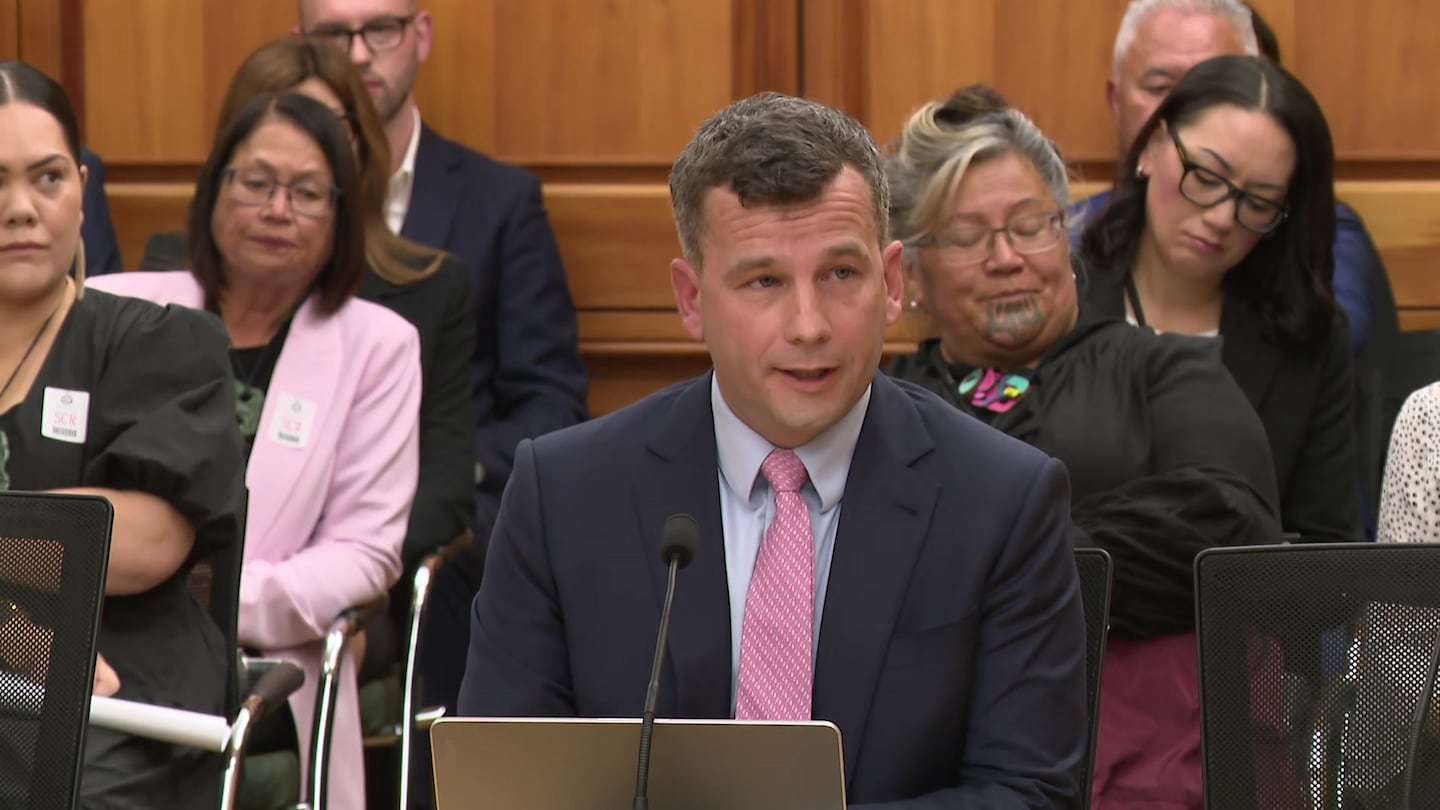While many at the top of Te Ika-a-Māui have the day off, the Justice Select Committee in Wellington has started hearing the first of many verbal submissions around the Treaty Principles Bill.
Within the first two hours, the committee heard from many with only two actually for the bill.
Te Ao Māori News has provided a summary of the first two hours of submissions from the committee hearing.
The creator of this bill, Act Leader David Seymour, spoke first in the early morning.
“I want to be clear that my beliefs behind this bill and my beliefs in freedom under the law is a long-held and sincere belief.
“What we’ve witnessed in recent decades, is the courts and the Waitangi Tribunal that sort to define the principles of the treaty, is incompatible with freedom under the law with a free society where each of us have equal rights.”
He mentioned Brown Towns ticket prices for an event in Ōtautahi - where Māori and Pacific Islanders paid less than Tangata Tiriti - as an example of inequality between Māori and everyone else.
‘It is designed to subjugate, humiliate, assimilate, and oppress iwi Māori.’
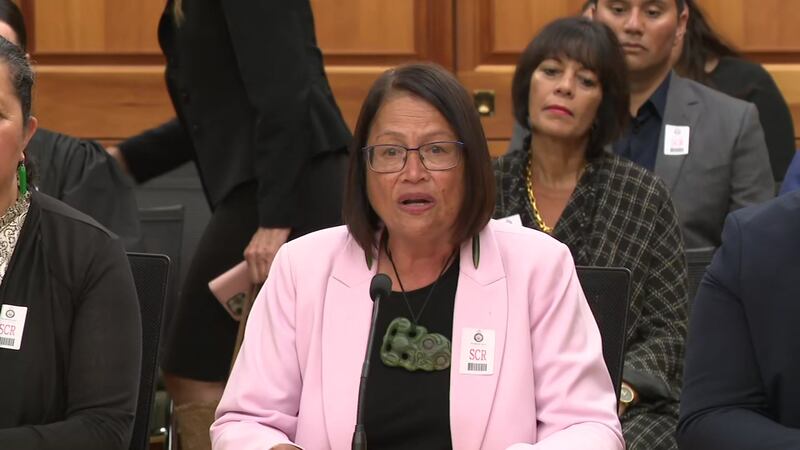
After Seymour, the National Urban Māori Authority chair, Lady Tureti Moxon, spoke.
“Te Tiriti o Waitangi is a foundation document of this country, it is a compact, an agreement, between iwi Māori and the crown to govern over our own. It is not one country, one slice fits all for everyone.
“Replacing the Treaty Principles with notions of civil government, equality, and historic rights; is an attempt by this coalition government to rewrite te Tiriti in favour of itself in order to retain power and control.
“It is designed to subjugate, humiliate, assimilate, and oppress iwi Māori.”
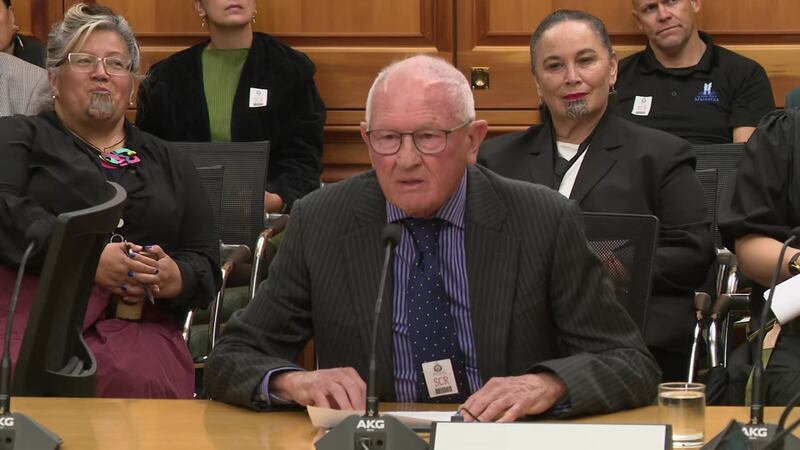
Immediately following Moxon, Gary Judd KC spoke in support of the bill.
He argued that the sovereignty of Parliament was being challenged both in the courts and by members of the legal profession.
Judd pointed to the undefined principles of the Treaty as one of the tools being used in this challenge, stating, “The bill, if enacted, would remove that weapon.”
“The behaviour of some of our senior judges suggests they think they are entitled to make law, to ignore Parliament’s laws, or to twist them into a shape they find more congenial.”
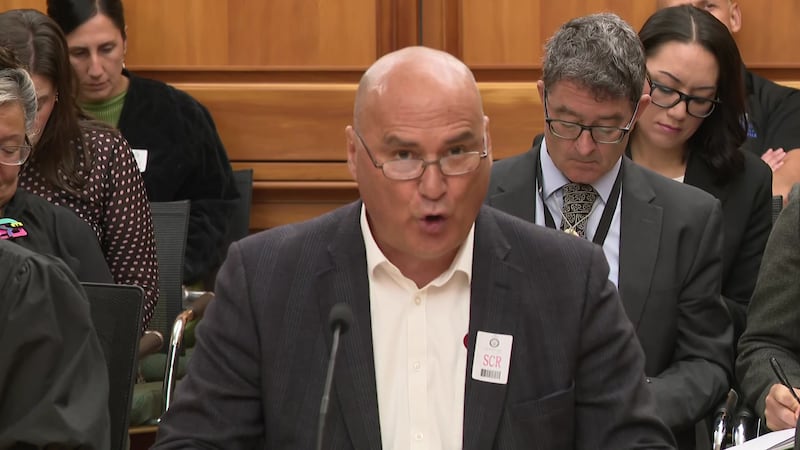
Once Judd’s time was up, Te Rūnanga o Toa Rangatira CEO and the person who debated Seymour live, Helmut Modlik, spoke.
Modlik began by referencing the Ngāti Toa settlement and apology, which emphasized the concept of “mutual trust.” He described the Treaty Principles Bill as being the complete “antithesis” of that principle.
“Truly this nation’s story is one of repeated crown failure to act with integrity and honour.”
He went on to talk about Ngāti Toa signing te Tiriti saying, “It is in historical fiction - repeated just a moment ago - and a logical and cultural impossibility that Ngāti Toa Rangatira ceded our mana [and] sovereignty to the crown in 1840. It never happened.”
Modlik continued to talk about Parliament being built on Ngāti Toa land saying the institute was not built on “any legitimate rule of law basis, rather it was by the means used by usurpers and tyrants the world over”.
“Lies, manipulation, theft, and force of arms; that is the shameful whakapapa of this government and this parliament in this land, and that’s the truth.”
He called the Bill an “international embarrassment” for Aotearoa.
‘Only has the intent of colonising Māori.’
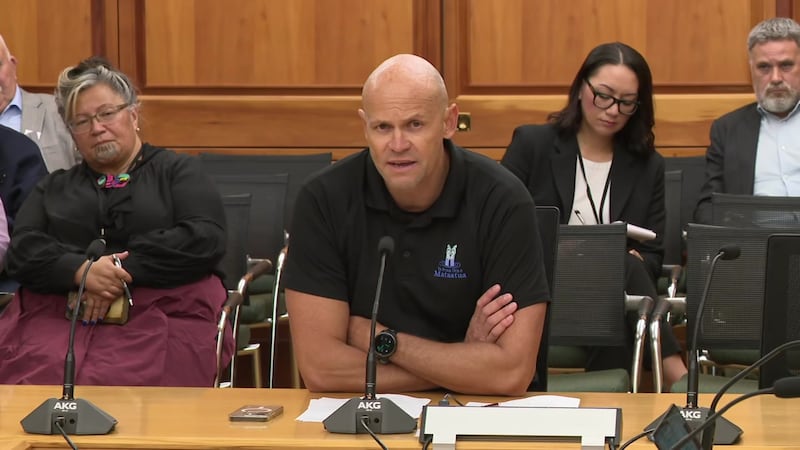
On behalf of Te Puna Ora O Mataatua, Dr Chris Tooley, made a submission “opposing and condemning” the bill.
He mentioned the current Treaty Principles were not created by Māori but instead by the courts and Parliament.
“The proposed principles have no legitimacy anywhere … these principles have no grounding, they have no correlation to any intellectual discipline anywhere.”
Tooley added the bill would rewrite the only piece of te Tiriti the crown upholds and described Seymour’s bill as a “simple piece of fiction, that only has the intent of colonising Māori.”
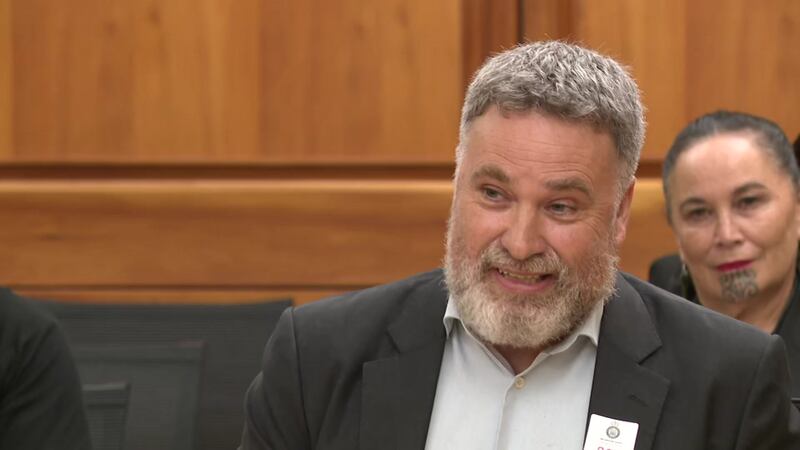
Legal academic Carwyn Jones described the bill as “flawed in both process and substance” and called it a “colossal waste of time and resources,” noting that every political party except ACT plans to vote it down in the second reading.
“The bill would create significant and costly uncertainty about the implication of the principles of the treaty, where there is currently significant certainty. It has already undermined our ability to have an effective national conversation about the role te Tiriti plays [in the] foundational contractional instrument by promoting a false interpretation of Te Tiriti.”
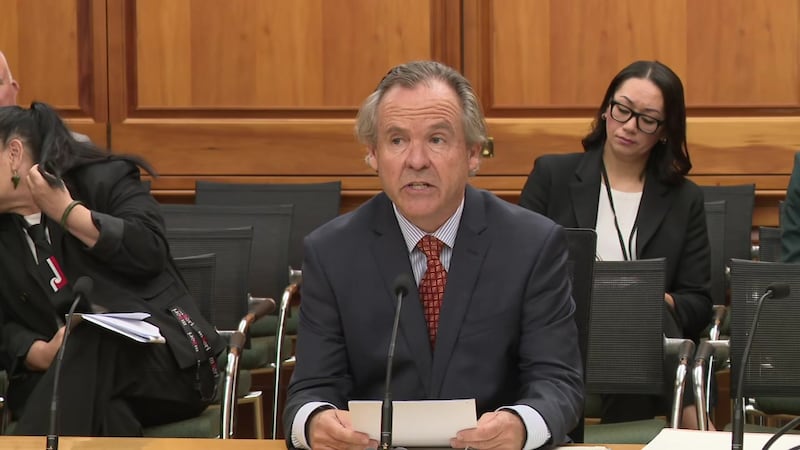
Spencer Scoular, a private collector of Treaty materials, spoke to the committee opposing the bill.
“My key message is that the British Crown effectively only consented to the English text of the treaty. While the British Crown ratified both the texts, they ratified Te Tiriti with the reservation that its translation is the English text to the treaty, this has significant implications for the treaty principles and treaty relationship.”
He clarified the Treaty was between the crown and rangatira and not between William Hobson and rangatira.
He would go on to present five documents of the “ratified” documents during the process of the Treaty of Waitangi and Te Tiriti o Waitangi.
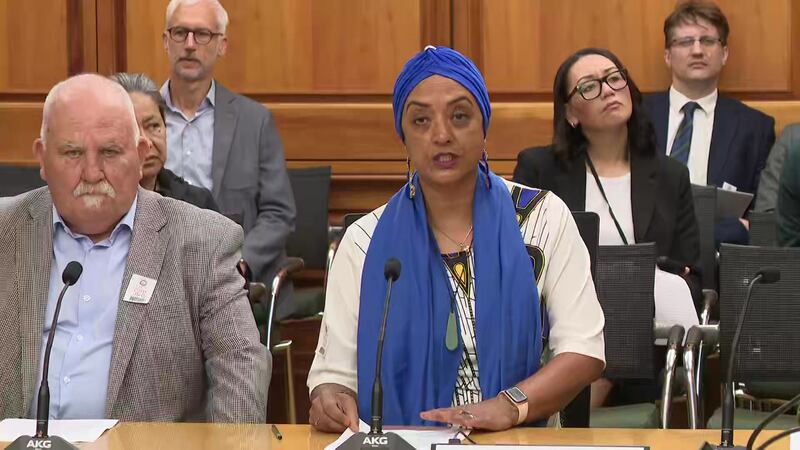
Rizwaana Latiff, a Tangata Tiriti Aotearoa member and President of the Multicultural Association Hawke’s Bay Inc – Te Kāhui Konarau, stated that the only way to honour being Tangata Tiriti is to ensure Māori can fully exercise their rights as the Indigenous people of Aotearoa.
“As tangata Tiriti I understand, that we as migrants will only be able to fully participate and honour our position as tangata Tiriti if Māori are able to exercise the inherent and enduring rights as tangata whenua.”
She said those in migrant communities are more vulnerable to misinformation from people in power, stating this bill is contributing to it.
“This bill with all its flaws especially distracts from the very real issues of social and economic inequality caused by colonisation, white supremacy, islamophobia, etc.”
Latiff added she had worked in the healthcare system for 25 years and had seen first-hand how systemic racism had affected vulnerable communities.
The committee is set to hear more submissions throughout the day, with the final one ending at 5 pm tonight.


